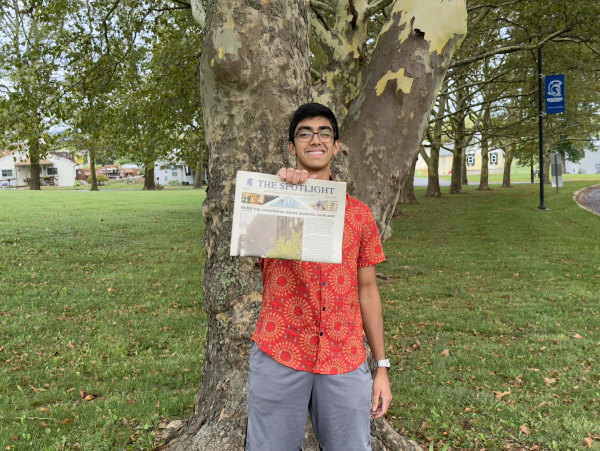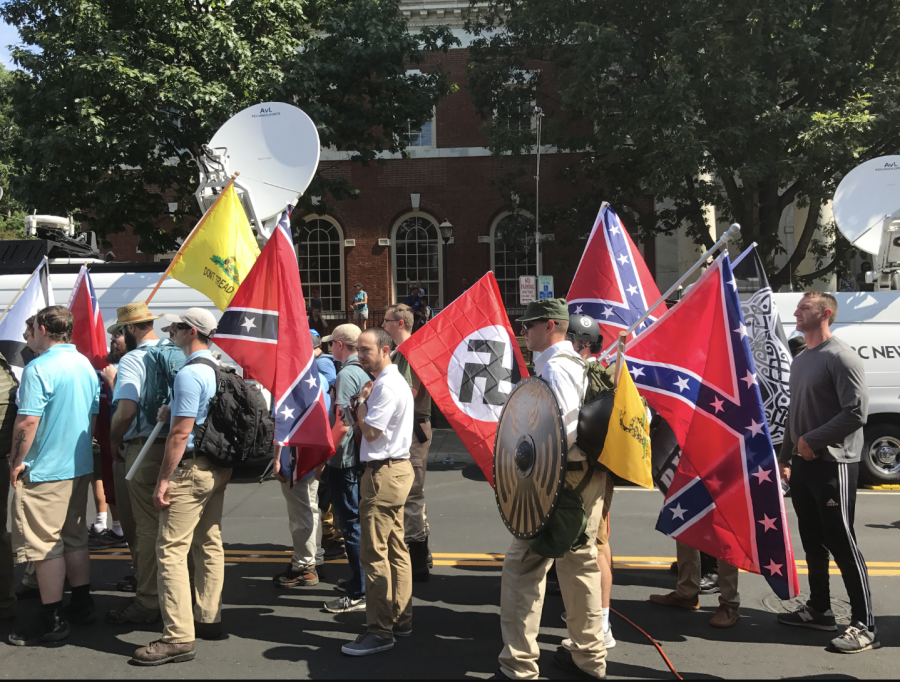Antisemitism rhetoric must come to an end
More work needs to be done to stop this and to leave behind the Kanye Wests, Kyrie Irvings, and Doug Mastrianos
On October 8, 2022, prolific rapper and producer Ye, formerly known as Kanye West, tweeted an incoherent and disturbing message attacking Jewish people, specifically those fitting the close-minded stereotype of the wealthy, “all-powerful” Jew.
In a career laden with controversy, these antisemitic ramblings broke the dam. In the following days, companies such as the Gap and Balenciaga terminated lucrative relationships with Ye. Meanwhile, his separation from Adidas caused his net worth to plummet by nearly 75%.
SLHS senior and Jewish student Boris Litvak sees these developments as a step in the right direction.
“I think it’s best to not give time, money, and attention to these people who purposefully spread antisemitism,” Litvak said. “That includes Kanye West.”
Unfortunately, West is not the only public figure to express such hateful opinions. NBA player Kyrie Irving recently endorsed the Black Hebrew Israelites, who believe that black people are the real Jews; an idea often accompanied by strong antisemitic sentiments. Locally, Pennsylvania Republican gubernatorial nominee Doug Mastriano has come under fire for payments made to Gab, a far-right social media platform known for extreme antisemitic commentary. This created additional tension in an already heated election season, since Mastriano’s competitor, governor-elect Josh Shapiro, is Jewish.
Nationwide, antisemitism is on the rise. According to an audit by the Anti-Defamation League (ADL), 2,717 antisemitic incidents of “assault, harassment, and vandalism” took place in 2021, the highest count on record since 1979. On average, seven such incidents occurred every day. When looking at these reports, one question becomes abundantly clear: why does America struggle so much with antisemitism? The answer to this lies in our country’s often painful history.
“Antisemitism has a long history here in the United States. People believed that, with the success of civil rights and womens’ rights, it was something we’d left behind or overcome, but the realization is it’s still very much a part of American culture,” social studies teacher Mr. Thomas Beaupre said. “There’s still this whole group that [holds] these beliefs and [promotes] them.”
For centuries, antisemitism has been swept under the rug and treated as a lesser evil than other forms of discrimination. During the Civil War, Union General Ulysses S. Grant expelled Jews from his military districts, as he believed they spread corruption in the army. Even before the late 19th-century influx of immigration and World War II, antisemitism had already rooted itself deep into American culture.
Finding solutions for an issue as deeply rooted and complex as antisemitism in America is no easy task. The FBI has designated teams and committees to investigate and disrupt hate crimes, but it remains to be seen if these efforts can quell the surge. To Mr. Beaupre, solutions must start in schools.
“We always talk about education as an important way of getting people real information, factual information, rather than misinformation,” said Mr. Beaupre. “We have to work as a nation to speak out against that kind of stuff and promote acceptance.”
Thankfully, there is work being done to end hateful misinformation in schools. For example, in 1985, the ADL created No Place for Hate, an “anti-bias program” implemented in schools that seeks to combat and address prejudices in classrooms and communities. More recently, the United Nations Educational, Scientific and Cultural Organization (UNESCO) pledged its support for schools in addressing antisemitism as a severe problem.
These actions have proven successful, but we must forge on in addressing and abandoning antisemitism. It is clear that more work must be done to end antisemitic hatred and leave behind the Kanye Wests, Kyrie Irvings, and Doug Mastrianos of society.

Senior Kishore Annambhotla has dedicated four years to Southern Lehigh High School’s Spotlight newspaper. Three of those years he spent in editorial...


